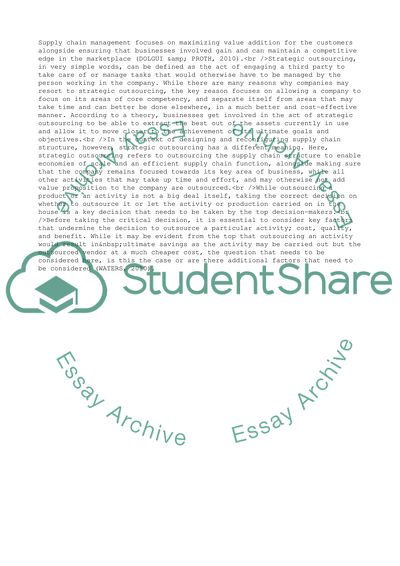Cite this document
(Concept of Strategic Outsourcing in Supply Chain Management Essay Example | Topics and Well Written Essays - 1750 words, n.d.)
Concept of Strategic Outsourcing in Supply Chain Management Essay Example | Topics and Well Written Essays - 1750 words. https://studentshare.org/management/1856338-supply-chain-managment
Concept of Strategic Outsourcing in Supply Chain Management Essay Example | Topics and Well Written Essays - 1750 words. https://studentshare.org/management/1856338-supply-chain-managment
(Concept of Strategic Outsourcing in Supply Chain Management Essay Example | Topics and Well Written Essays - 1750 Words)
Concept of Strategic Outsourcing in Supply Chain Management Essay Example | Topics and Well Written Essays - 1750 Words. https://studentshare.org/management/1856338-supply-chain-managment.
Concept of Strategic Outsourcing in Supply Chain Management Essay Example | Topics and Well Written Essays - 1750 Words. https://studentshare.org/management/1856338-supply-chain-managment.
“Concept of Strategic Outsourcing in Supply Chain Management Essay Example | Topics and Well Written Essays - 1750 Words”. https://studentshare.org/management/1856338-supply-chain-managment.


